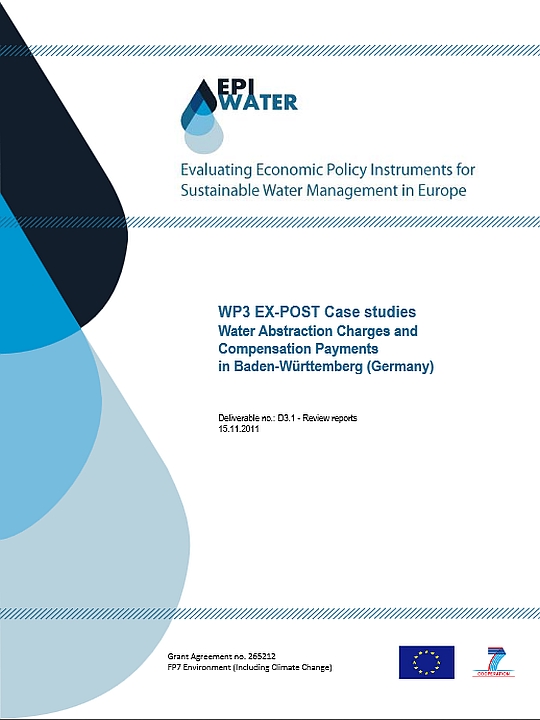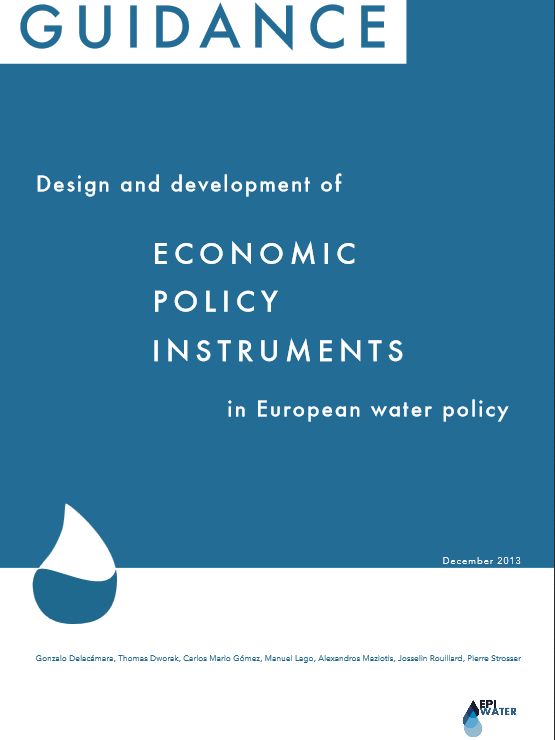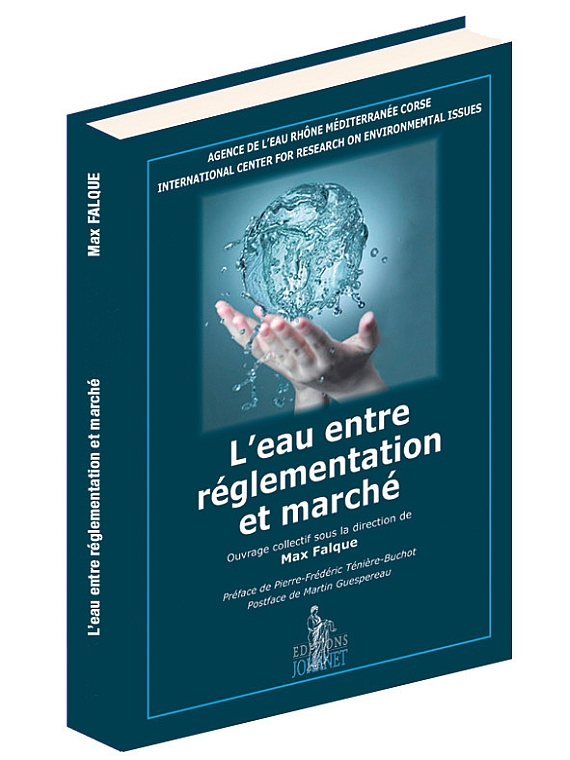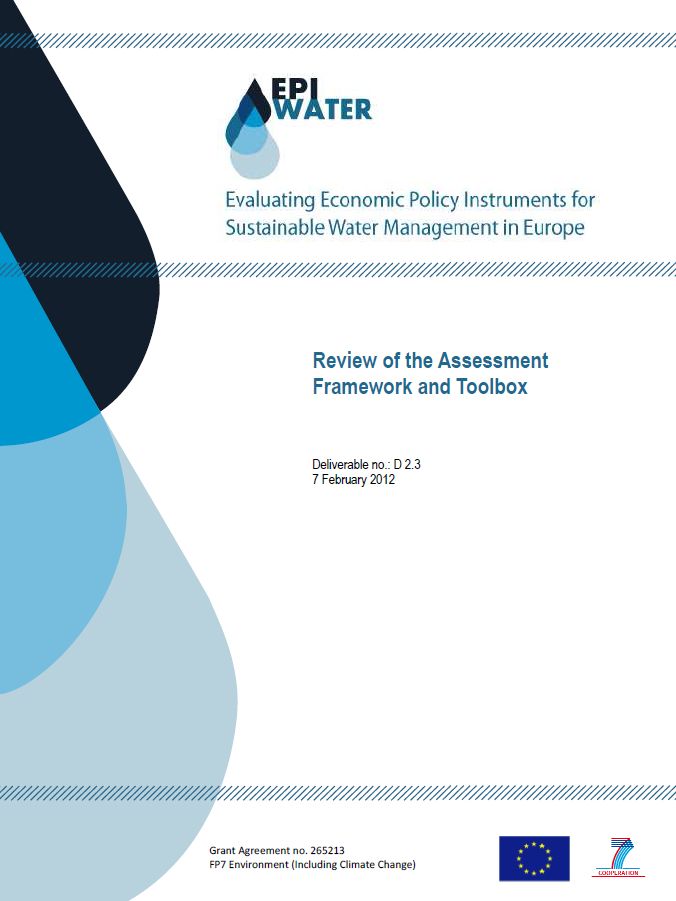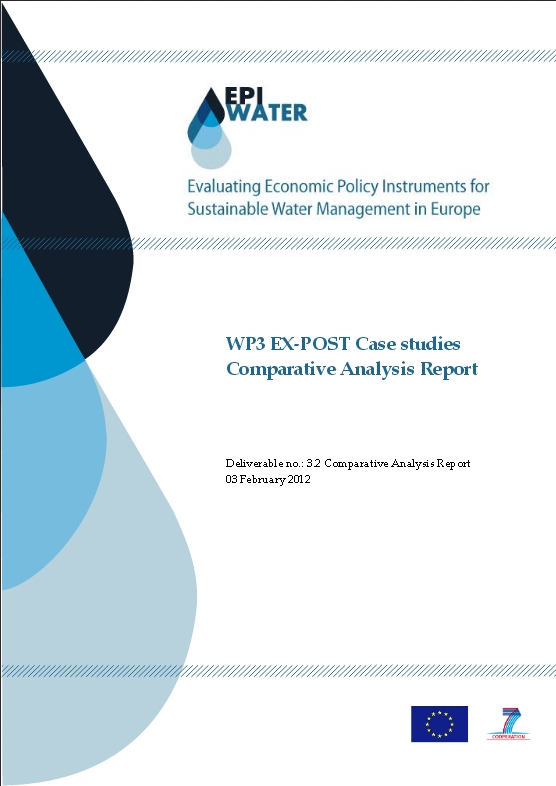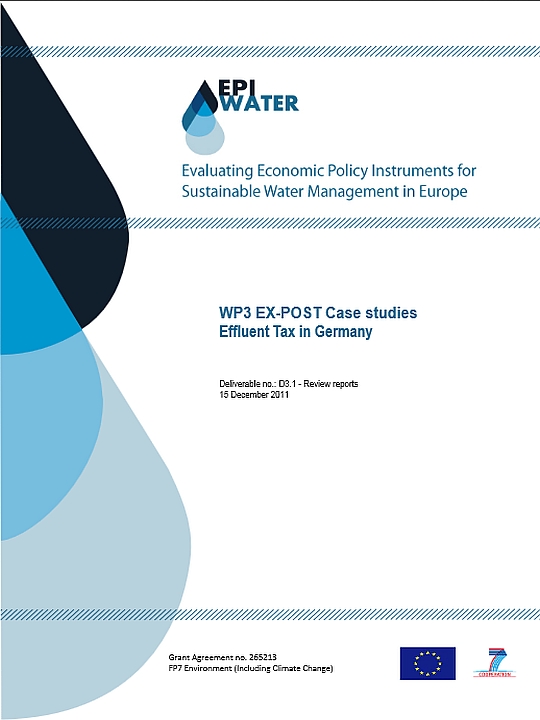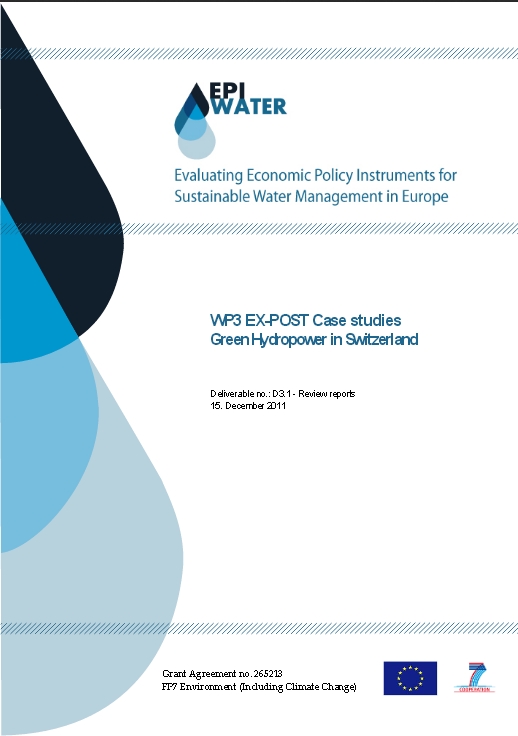Water Abstraction Charges and Compensation Payments in Baden-Württemberg (Germany)
- Publication
- Citation
Möller-Gulland, Jennifer and Manuel Lago 2011: Water Abstraction Charges and Compensation Payments in Baden-Württemberg (Germany). Ecologic Institute.
This case study conducted by Ecologic Institute analyzes the policy mix of economic and regulatory instruments introduced in the German state of Baden-Württemberg in order to address two key water management problems: excessive nitrate concentrations in groundwater and unsustainable water abstraction. Three different policy instruments have been applied: the Regulation on Protected Areas and Compensatory Payments (SchALVO) introduced in 1988 (a regulatory and economic instrument), water abstraction charges, and Market Relief and Cultural Landscape Compensation for farmers (MEKA), a voluntary instrument introduced in 1992.
The MEKA and SchALVO measures have been considerably successful in reducing groundwater nitrate concentrations in Baden-Württemberg. The success may have been higher if monitoring activities had been expanded and enforcement measures had been imposed. The impact of agricultural practices (monitored for example via nitrate levels in soil) is aggravated by the impact of climatic conditions, which thus poses a challenge to strict enforcement. Water abstraction charge allows for the internalisation of environmental and resource costs, but the compensation payments for farmers arguably contradict the "polluter pays principle", going against Article 9 of the Water Framework Directive.
Positive outcomes include the fact that transaction costs can be reduced by introducing joint applications for compensatory measures (e.g., for MEKA and SchALVO) and by harmonizing administrative procedures to already existing economic or regulatory instruments (e.g., the water abstraction charge was linked to existing procedures of the effluent tax). Close cooperation between water suppliers and the government enabled the shared use of the water suppliers' water quality monitoring data. The study [pdf, 1.8 MB, English] is available for download.
